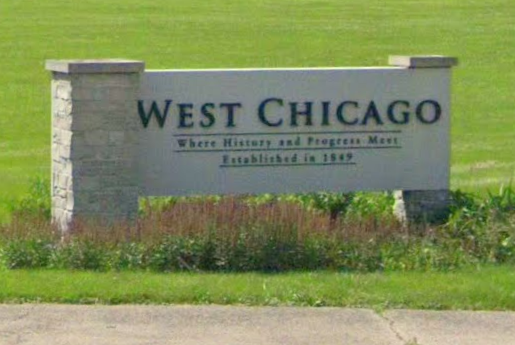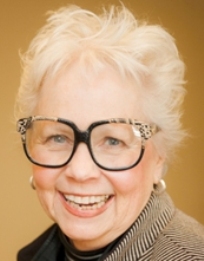Exploring the Nearby: Barhopping in West Chicago
When David and I married, he was on the staff of Youth For Christ.
Their international headquarters were located in Wheaton, IL. One of
the good words of advice that was passed along to us from a fellow
director was this: “Put your roots down deep in one place. Over time
all those connections begin to pay off in your ministry. Then, roam out
from there as far and wide as you need to do so.”
So,
we did exactly that. All our married life, the Chicago area has been
our home. Specifically, for the last 47 years or so, we have lived by
choice in West Chicago—a far suburb on the edge of this greater
metropolitan area.

We
deliberately chose to live in West Chicago because of its high Hispanic
demographic; some 52% or so of our population is non-white, mostly
Latino. I did not want our kids to grow up in a world that persuaded
them it was predominately white, middle-class, and Protestant.
This
decision has more than paid off: Our four children have been exposed to
other cultures. They’ve heard Spanish spoken regularly in their schools
or in the shops and stores around us. More than that, they have sensed
that faith-expressions take different forms and use a variety of
practices of worship, yet all work to seek the common good.
As
far as roaming wide, I know at the last count, I have visited, explored
or worked as a journalist in some 55 countries. I am aware that the
“American way” is not always the best of ways for international
settings, that there is much that is beautiful and true and stunningly
mind-stretching in the habits and beliefs, in the morays and the
cultures of other countries. Very frequently, the indigenous church led
by indigenous leaders in other places is more devout, more robust and
more evangelistic than the churches of these 50 United States (some of
them are sending missionaries to evangelize us).
This
traveling out has all been good. However, in the moving so much across
the world, there have been some ill effects of it on my life.
A
trite lingering effect of all this coming and going is that I don’t
care if I ever pack another suitcase again, drive to park somewhere at
O’Hare or Midway, or go through what I term the “cattle-herding
syndrome of modern flight travel.”
A
more important area of neglect is that we have not had (or taken) the
time to get to know our immediate living environs. West Chicago, for
instance, is ostensibly an unremarkable little town with a 27,000-some
population. It has a non-distinct downtown (to the outsider’s eye).
There is not much here where we live that would draw people from other
states or communities in Illinois for any kind of visit.

Our
homes are mostly middle- or lower-middle-class homes. And very
frequently, you can readily identify some of the Hispanic dwellings.
These houses have at least four cars in the driveway and a couple of
pickup trucks beside. As one of my Latino friends explained, “In my
country, in Mexico, you need to sleep, you come. We have roof. We have
shelter. We have place to stay. You sleep on floor.” Often, I assumed
that he meant “you-sleep-with-the-other-car-and-pickup-truck owners.”
All claiming a spot, I imagine, on the living-room rug.
West
Chicago has few (well, none actually) little boutique shops. We do have
a couple good resale stores, however. Do those count?
So,
not only do I shop locally as much as possible, and hire workers from
our community, I am now exploring, in earnest, the little town where I
have lived for 47 years.
Joel Mains, our son, got
laid off from his television job (he’s won 5 Emmys) and some months
later, more of his former coworkers were released. After working for 17
years with deadline after deadline, he decided to sell his house, which
was only on the market for two days and for which the sellers paid more
than the asking price, and not hunt for another media position. We
said, “Just move in with us. No rent, no down payment. No hurry as far
as having to decide what you want to do.” He wanted to finish a novel.
Perfect. Live with Mom and Dad with time enough each day to do good
writing.
Nevertheless,
it is Joel, who was also raised and went to school in West Chicago, who
has inspired the thought that we visit all the places in our town we’ve
never explored in 47 years of living here.
So. He and
I, one Sunday afternoon when the husband and father was involved in
something else, began exploring our little town with whatever was open
since most everything downtown was closed. What was open was the bar,
that would be Bunkers Bar and Grill, which I have never stepped foot
inside before.
That
was the beginning a hilarious, if not glorious, couple of hours. The
bar was crowded, full of convivial people, and my son ordered me a
mixed drink, a Bloody Mary, which I also have never had before. We
started chatting with the friendly folk beside us, and I, not given
much (well, at all) to barhopping, began to see the reasons why these
establishments are so popular. They are a meeting and greeting place,
and how we need meeting and greeting places in this world.
My
drink was delivered with an extraordinary adornment—not just a fancy
paper coil, but a whole grilled-cheese sandwich pronged to the side of
my beer glass. Joel and I howled. When I couldn’t finish the drink and
asked for a carryout, the serving gal looked at me with crossed eyes,
“Wha?” OK, OK. One doesn’t generally go home from local bars with a
half-drunk alcoholic beverage in a carryout container—not to mention a
half-eaten sandwich. Something to do with driving with an alcoholic
beverage open in the car. But I wasn’t driving, and I don’t like to
waste money on uneaten food (or Bloody Marys, even if they are the
first drink—or perhaps because they are the first drink of its kind.)
I’m learning. I’m learning.
Another possibility popped into my mind: Why not bar evangelism?
So,
Joel and I took David on our next round of nearby exploration, but we
thought he should at least start with Bunkers. The shuffleboard on the
floor in the nearby room (that we had promised as a gaming challenge to
my husband) had disappeared, but an electronic dart game was hung on
the wall between the barred windows.
Not caring about darts,
or winning, I haphazardly tossed mine (with the red-flagged ends) while
striking up a conversation with the woman who was cleaning the room.
“You are doing such a good job here,” I mentioned, thinking it was a
decent opening gambit.
“Oh,
I love cleaning. I love putting things in order. I love making a room
shine for the people who use it.” Well, she and I were then off to an
intriguing conversational arc with interruptions from son and husband:
“Karen, it’s your turn.” The lady was a Christian, loved the fact that
her housekeeping skills were “a blessing” to others. I was enchanted
with her, and to my surprise, even tied for first place in the dart
toss with my husband. Without even trying.
All this to say: You never know what you are going to discover when you explore the neglected places that are nearby.
Like
all the thirty miles of walking trails your brother-in-law, Douglas
Mains, an orthopedic surgeon with an ecological passion, who died some
seven years ago, helped to establish through his participation in
conservation movements. They surround the area where David and I live.
Thank you, Doug.
Like the paleta ice-cream store in the corner of a small downtown shopping strip. If you don’t know, paletas
are a Mexican frozen dessert made from fresh natural fruits such as
strawberry or mango; some have a creamy milk base. We generally choose
about twenty or so bars—with a grandchild in tow. The saleswoman writes
the name of each paleta on their stick. I take twenty or so with me
when asked to bring some treat to a dinner or a meeting. (Actually,
this is worth a trip to our little town.)
So, I am
spending these months exploring my home territory. The public library
is opening again. I had planned on being an English-speaking
participant in a dialogue/discussion group for Hispanics learning this
language, but COVID closed down that effort. Hopefully, it will start
up again soon. AND what about a group for local writers? AND how about
books from those writers donated to the library? And…
You get the idea. The nearby is, actually, nearby.
Karen Mains
NOTICES
HELP WANTED: PROJECT MANAGER
Karen Mains is swamped with publishing projects and seeks to hire an
efficient, detail-proficient project manager who is gifted at meeting
deadlines, has a sense of humor (in order to work with David and Karen
Mains) and loves seeing embryonic ideas to completion. Some of the
projects will deal with print products. Others will involve assembling
brainstorm teams, communicating with tech support and executing
social-media involvements. Mainstay Ministries would like to hire ASAP.
The first months will be a little more than part-time depending upon
the availability of the one hired. We will discuss salary, keeping
qualifications in mind. Contact Karen Mains via email at karen@hungrysouls.org or via phone at 630-293-4500. You can also send a bio or work history via email or snail-mail to Karen Mains/ Box 30/ Wheaton, IL 60187. DAVID & KAREN'S PODCAST
David and Karen Mains are podcasting. Their show is
called Before
We Go. You can find more info about the podcast, and where
to listen to it, at www.BeforeWeGo.show (but in all lowercase letters). Some of the recent podcast visits include A World Beyond Our Own, Asking Good Questions and Proper Expectations. New episodes come out weekly.
Reminder!
The Soulish Food e-mails are
being
posted biweekly on the Hungry Souls Web
site. Newcomers can look that over and decide if they want to
register on the Web site to receive the biweekly newsletter. You might
want to recommend this to friends also. They can go to www.HungrySouls.org.
|
|

Karen
Mains
"You never know what you are going to discover when you explore the neglected places that are nearby."
BOOK CORNER

The End of White Christian America
by Robert P. Jones
I’m recommending one of the many books I’ve read during this COVID hiatus.
Robert
P. Jones is the CEO of the Public Religion Research Institute. The
back-cover copy explains well the focus of this writing: “For most of
the country’s history, White Christian America—a cultural and political
identity built primarily by white Protestant Christian—set the tone for
our national policy and shaped American ideals. But in recent decades
this has changed. Drawing on findings from one of the largest troves of
survey data on contemporary politics and religion, Robert Jones shows
how today’s most heated political controversies can be fully understood
only in the context of the anxieties that white Christians feel as the
racial, religious, and cultural landscape has changed around them.
“Looking
ahead, Jones forecasts the ways that white Christians might adults to
their new reality—and the consequences for the country if they don’t.”
I
think this book, published in 2016, should be read by anyone attempting
to understand the cultural shifts that are occurring in our nation. It
would be a good book for reading groups or discussion forums.
Certainly, it should be read by any not-for-profit leaders seeking to
serve special-interest groups in our nation.
|



